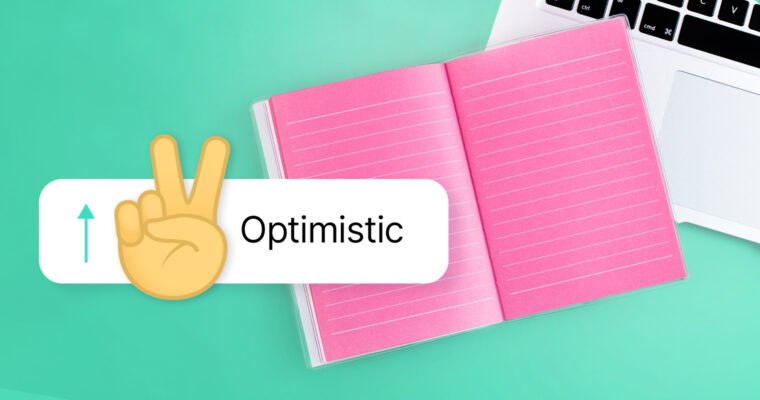
If you’ve been failing to see the silver lining lately, you’re not alone.
Over the course of the pandemic, positivity and general optimism took a hit as we all faced uncertainties and new challenges in every part of our lives. This sense of unease at times shifted the way we were communicating with each other, with optimism taking a back seat and informative dialogue forging ahead.
While times have been difficult, there is still an opportunity to instill hope through our communication.
In truth, seeing the glass as half full can be helpful in the face of adversity. Here are five positive phrases that will infuse your daily communication with an optimistic tone and an uplifting message.
1 How can I help?
When people are on edge or dealing with stress, the best way to communicate optimism is by asking them how you can offer support. If you’re chatting with someone who seems overwhelmed, asking them how you can help will immediately lighten their load. Sometimes, opening the dialogue will be enough; when people feel comfortable sharing their concerns, you can use optimism to reshape the narrative and help them see the bright side.
2 You’re a [positive adjective] + [person]
With this basic formula, there are millions of combinations you can use to build up the people around you with positivity. Whether you’re communicating with a colleague or praising your partner, this simple formula can be used to compliment anyone and spread joy.
3 Don’t… —> I like it when…
Don’t do that. Don’t message me when I’m in a meeting. These demands come off as sharp and severe, emphasizing the problem of using negative language. Starting with “don’t” immediately elicits a tone of negativity, which is why it’s so important to reframe negative language as positive language whenever possible.
While you can’t always control how people react to your writing, using tools like Grammarly’s tone detector—which scores how “optimistic” your writing is—can ensure that you’re communicating an uplifting message. Reframing negative language will ultimately show that you’re seeing the world from a positive point of view.
4 Thanks so much for [blank]
Saying thank you is one of the easiest ways to set an optimistic tone in your writing. If you begin an email by saying thanks and then dive into other details, the recipient will immediately feel appreciated upon receiving your message. If your morning video call was successful, express your gratitude to the participants in the follow-up email. If your editor’s input improved your story, tell them how much that feedback meant to you.” Expressing thanks means showing gratitude, and it’s a known way to celebrate the present.
5 I appreciate your [noun]
Whenever the word “appreciate” is mentioned, optimism automatically comes to the fore. Not only is appreciation a key motivator, but feeling appreciated has many psychological effects in the brain similar to dopamine. Similar to saying thanks, telling a person you appreciate their work, kindness, generosity, time, or efforts is an excellent way to spread optimism.
Optimism is a great tool for managing expectations, especially during times when uncertainty is rife. By leading with positive language, you can incorporate more optimism in your communication and become a force of hope through your writing.






